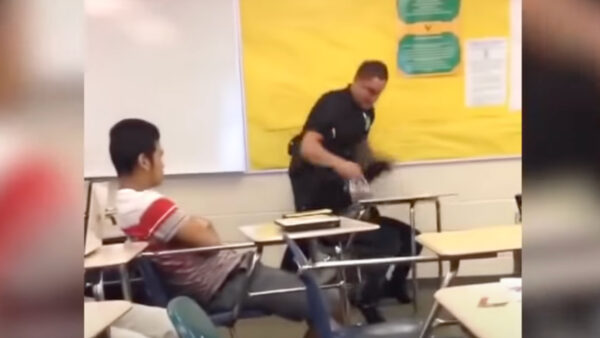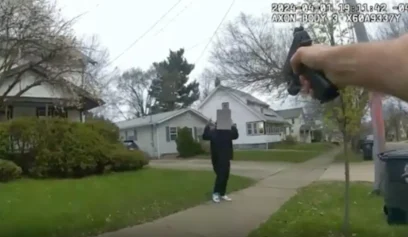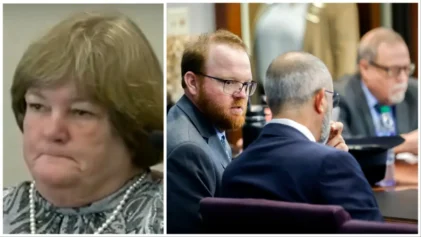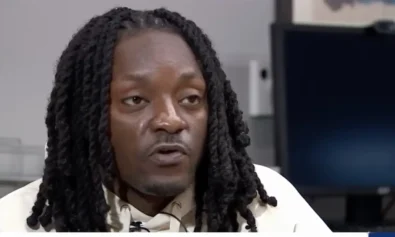A federal appeals court ruled that a law in South Carolina making it a crime for children to be “boisterous” or “obnoxious” at school is unconstitutional,
The U.S. Court of Appeals for the Fourth Circuit ruled on Feb. 22 that the law deprives students of their 14th Amendment due process rights.
The three-judge panel’s ruling comes seven years after an incident at Spring Valley High School in Columbia, South Carolina, back in 2015. School Resource Officer Ben Fields violently pulled a Black student out of her desk and slammed her to the ground, reportedly over the student’s cellphone use during algebra class. The video went viral and the student who recorded the video, Niya Kenny, was arrested for causing a “disturbance.”

The American Civil Liberties Union backed the Carolina Youth Action Project in a 2016 lawsuit that challenged the state’s “disturbing schools” and disorderly conduct laws. The ACLU argued that the laws allowing for students to be criminally charged for regular teenage behavior such as swearing, loitering, or undefined “obnoxious” actions on school grounds were unconstitutional. The lawsuit also argued against the “disorderly conduct” law, which prohibits students from acting in a “disorderly or boisterous manner.”
Fields was fired from his job as a school resource officer for the Richland County Sheriff’s Department after video surfaced of him slamming a then-16-year-old Black student named Shakara to the ground. Fields was seen using a choke hold on the teen before ripping her from her desk and dragging her out of the classroom.
Fields defended his actions back in 2017 when he told WISTV that he said to the teen, “You know me. You know I’m a fair guy.” Fields continued, “She goes, ‘I don’t know you.’ She was clearly disturbing school at that point in time – disturbing the classroom and the other 20 kids or so that were in the class, and she needed to be removed.”
Judge Toby Heytens of the U.S. Court of Appeals for the Fourth Circuit noted troubling statistics about the state’s prosecution of minors using the law. Heytens wrote that between 2014 and 2020, at least 3,735 kids between 8 and 18 were prosecuted for “school-related” disorderly conduct.
The judge also noted that more than 9,500 students were prosecuted under the “disturbing schools law.” South Carolina even used the law to prosecute students as young as 7, and Black students were charged seven times more than white students with the law.
Heytens wrote that the “enthusiasm with which one South Carolina school district referred its students for criminal charges” prompted local prosecutors to beg the district not to refer so many cases to them for criminal charges.
“For those who have met — or been — elementary or secondary school students, the question naturally arises,” he wrote. “How does this statute objectively distinguish criminally disorderly, boisterous, obscene, or profane childhood misbehavior from garden-variety disorderly, boisterous, obscene, or profane childhood misbehavior?”
The judge added that anyone going by a schoolyard during recess would most likely be “witnessing a large-scale crime scene.”
Appeals Judge Pamela Harris also ruled to strike the law while Judge Paul Niemeyer dissented. The ruling could have an influence on schools across the country as many have reported an increase in misconduct due to the COVID-19 pandemic.
A video of another incident at East Ridge High School in East Ridge, Tennessee last year went viral after a former Hamilton County Sheriff’s Office school resource officer, Tim McCrae, pulled a Black student by his locs down school bleachers. The ruling is especially important in South Carolina as Republican Gov. Henry McMaster said he plans to have school resource officers in every public school statewide.


